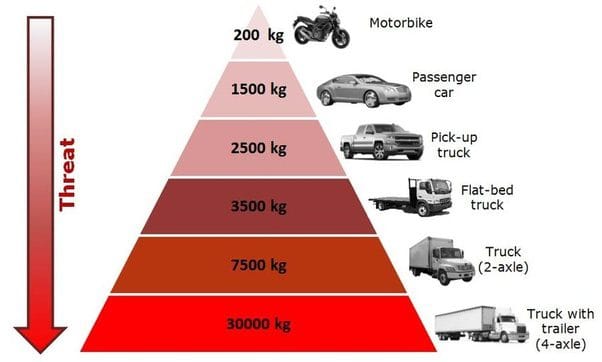How Much Does a Car Weigh? Uncover Vehicle Mass Secrets
If you’ve ever wondered how much a car weighs, you’re not alone. The weight of a car is an important factor to consider when buying, maintaining, or repairing a vehicle. Knowing the weight of your car can help you understand its performance, fuel efficiency, and safety features. In this article, we’ll explore the different types of cars and their average weights.
Modern cars, trucks, and SUVs weigh anywhere from one ton to nearly five tons. The average weight of a car in the United States is around 4,000 pounds (2 tons). However, this can vary based on the type of car and its features. For example, a small economy car may weigh around 2,500 pounds (1.25 tons), while a large luxury SUV can weigh up to 6,000 pounds (3 tons).
When discussing the weight of a car, there are a few different terms that are used. The most common is curb weight, which refers to the weight of the car without any passengers or cargo. This includes all of the standard equipment that comes with the car, such as the engine, transmission, and other mechanical components. The curb weight can vary based on the size and type of car, as well as the materials used to construct it.
Another term that is often used when discussing car weight is gross weight. This refers to the total weight of the car, including passengers, cargo, and any other added weight. The gross weight is important to consider when towing a trailer or other heavy objects, as it can affect the car’s performance and safety.
When it comes to different types of cars, there are a few general categories to consider. These include:
– Small cars: These are typically compact vehicles that are designed for city driving and fuel efficiency. They can weigh anywhere from 2,500 to 3,500 pounds (1.25 to 1.75 tons).
– Midsize cars: These are larger than small cars but smaller than full-size cars. They can weigh between 3,000 and 4,000 pounds (1.5 to 2 tons).
– Full-size cars: These are the largest passenger cars, often used for family transportation or luxury vehicles. They can weigh between 3,500 and 5,500 pounds (1.75 to 2.75 tons).
– Sports cars: These are designed for high-performance driving and can vary widely in weight depending on the model. Some sports cars can weigh as little as 2,000 pounds (1 ton), while others can weigh over 4,000 pounds (2 tons).
– SUVs: These are larger vehicles that are often used for family transportation or off-road driving. They can weigh anywhere from 4,000 to 6,000 pounds (2 to 3 tons) or more.
– Trucks: These are designed for hauling cargo and towing trailers. They can weigh anywhere from 5,000 to 10,000 pounds (2.5 to 5 tons) or more, depending on the size and type of truck.
The weight of a car can have a significant impact on its performance and fuel efficiency. Heavier cars require more energy to move, which can result in lower gas mileage. However, heavier cars can also be more stable and safer in certain situations, such as in bad weather or during a collision.
When buying a car, it’s important to consider the weight and other factors that can affect its performance and safety. This includes the car’s engine size, transmission type, and other mechanical features. It’s also important to consider the car’s safety features, such as airbags, seat belts, and anti-lock brakes.
In conclusion, the weight of a car can vary widely depending on the type of vehicle and its features. Modern cars, trucks, and SUVs can weigh anywhere from one ton to nearly five tons, with the average weight of a car in the United States being around 4,000 pounds (2 tons). Understanding the weight of your car can help you make informed decisions about buying, maintaining, and repairing your vehicle, as well as help you stay safe on the road.







